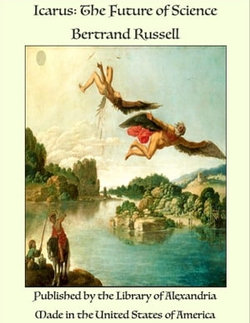Mr. Haldane’s Daedalus has set forth an attractive picture of the future as it may become through the use of scientific discoveries to promote human happiness. Much as I should like to agree with his forecast, a long experience of statesmen and governments has made me somewhat sceptical. I am compelled to fear that science will be used to promote the power of dominant groups, rather than to make men happy. Icarus, having been taught to fly by his father Daedalus, was destroyed by his rashness. I fear that the same fate may overtake the populations whom modern men of science have taught to fly. Some of the dangers inherent in the progress of science while we retain our present political and economic institutions are set forth in the following pages. This subject is so vast that it is impossible, within a limited space, to do more than outline some of its aspects. The world in which we live differs profoundly from that of Queen Anne’s time, and this difference is mainly attributable to science. That is to say, the difference would be very much less than it is but for various scientific discoveries, but resulted from those discoveries by the operation of ordinary human nature. The changes that have been brought about have been partly good, partly bad; whether, in the end, science will prove to have been a blessing or a curse to mankind, is to my mind, still a doubtful question. A science may affect human life in two different ways. On the one hand, without altering men’s passions or their general outlook, it may increase their power of gratifying their desires. On the other hand, it may operate through an effect upon the imaginative conception of the world, the theology or philosophy which is accepted in practice by energetic men. The latter is a fascinating study, but I shall almost wholly ignore it, in order to bring my subject within a manageable compass. I shall confine myself almost wholly to the effect of science in enabling us to gratify our passions more freely, which has hitherto been far the more important of the two. From our point of view, we may divide the sciences into three groups: physical, biological, and anthropological. In the physical group I include chemistry, and broadly speaking any science concerned with the properties of matter apart from life. In the anthropological group I include all studies specially concerned with man: human physiology and psychology (between which no sharp line can be drawn), anthropology, history, sociology, and economics. All these studies can be illuminated by considerations drawn from biology; for instance, Rivers threw a new light on parts of economics by adducing facts about landed property among birds during the breeding season. But in spite of their connection with biology—a connection which is likely to grow closer as time goes on—they are broadly distinguished from biology by their methods and data, and deserve to be grouped apart, at any rate in a sociological inquiry.



Share This eBook: